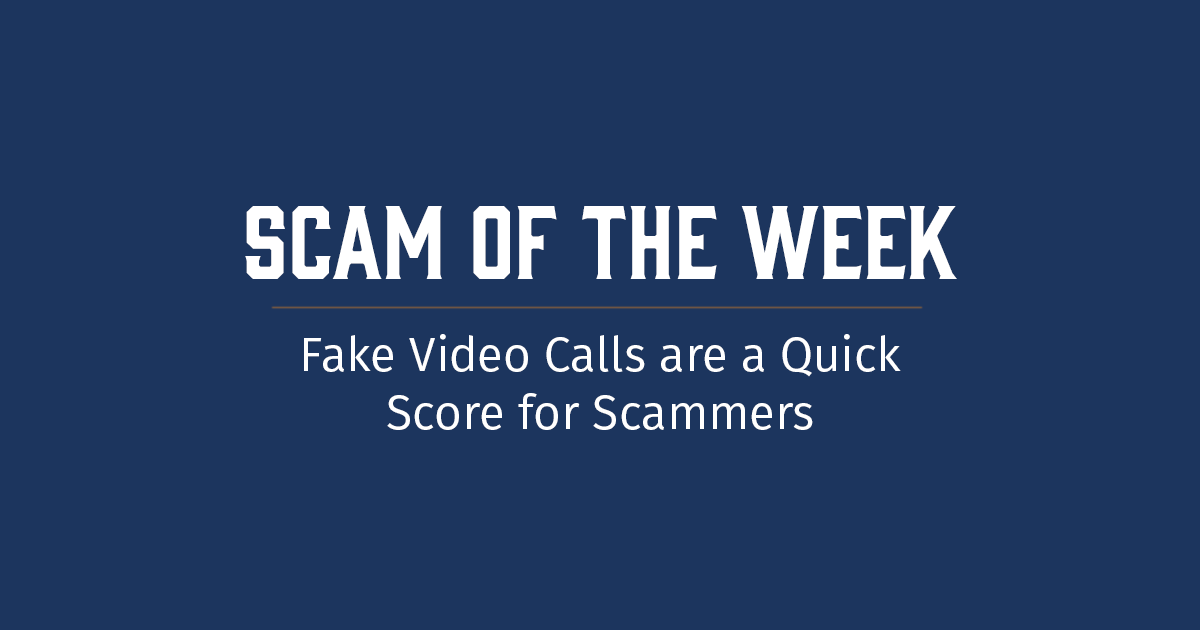With so many organizations still working remotely, bad guys continue to target you by spoofing popular video conferencing software, such as Zoom and Microsoft Teams. Video-conference themed phishing attacks can come in all shapes and sizes. For example, you may receive a phony welcome email that asks you to set up your new account. Or, you could receive an email claiming that you need to reschedule a missed meeting. As a more alarming example, you may receive a fake notice that your account has been suspended and you cannot join a meeting without first clicking the link in the email.
No matter what tactic the bad guys use, stay safe from video-conference themed scams by following these tips:
• Never impulsively click on a link within an email that you weren’t expecting.
• Check the from and reply-to email addresses. Watch out for domain misspellings such as “Zooom” or “Teans”, as this is a common trick used by scammers.
• When you’re asked to log in to an account or online service, navigate to the official website and log in. That way, you can ensure you’re logging in to the real site and not a phony look-alike.
Stop, Look, and Think. Don’t be fooled.

